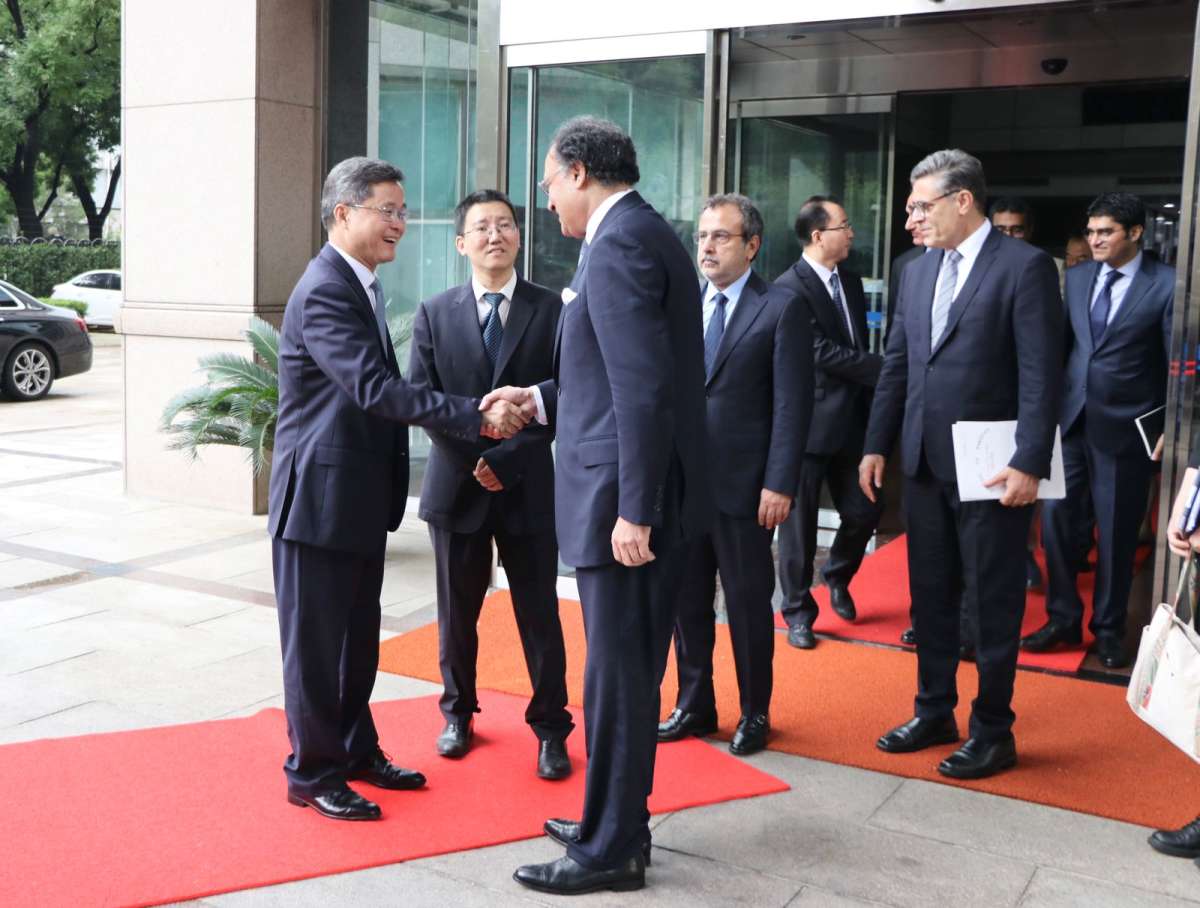Aurangzeb, who arrived in Beijing on Thursday, is in talks about relief for Pakistan’s power sector debt, alongside proposed structural reforms recommended by the International Monetary Fund (IMF)…reports Asian Lite News
Concerns are escalating within Pakistan’s financial sector as negotiations with Chinese authorities over rescheduling energy sector loans have encountered complications, Dawn reported.
On Friday, Finance Minister Muhammad Aurangzeb met with Pan Gongsheng, the governor of China’s central bank, to discuss bilateral financial cooperation, according to a statement from the People’s Bank of China.
Aurangzeb, who arrived in Beijing on Thursday, is in talks about relief for Pakistan’s power sector debt, alongside proposed structural reforms recommended by the International Monetary Fund (IMF). The outcome of these discussions is causing significant anxiety among stakeholders, who worry about potential impacts on foreign investment and exchange rate stability if the negotiations do not proceed favourably, as reported by Dawn.
A senior banker closely following the situation expressed doubt about the negotiations, saying, “We believe China will not outright reject Pakistan’s request to reschedule energy sector loans, but the final outcome appears bleak.” This sentiment reflects China’s initial reluctance to address the issue, which delayed the meeting and indicated their reluctance to discuss the energy loans.
China has long been Pakistan’s largest foreign investor, with Hong Kong’s investments also playing a crucial role. Despite a decline in Chinese investments, they remain the largest source of foreign direct investment (FDI) for Pakistan in FY24. Combined investments from China and Hong Kong accounted for nearly half of Pakistan’s total FDI inflows, which grew by 17 per cent to USD 1.9 billion. Of this, China contributed USD 568 million and Hong Kong USD 338 million, totaling USD 906 million.
SS Iqbal, a senior banker, noted, “Our dependency on China has increased as we negotiate to reschedule USD 15bn in energy sector loans, receive the highest FDI from China, and rely on them as our largest trade partner.” He added that China has also been instrumental in providing loans or rescheduling payments to bolster Pakistan’s reserves.
On March 23, 2018, the People’s Bank of China signed an agreement with the State Bank of Pakistan to provide a USD 2 billion loan via China’s State Administration of Foreign Exchange (SAFE) to support Pakistan’s foreign exchange reserves. This loan has been rolled over annually since 2018, with the latest extension occurring on February 29, 2024, extending it for another year.
Iqbal highlighted an additional concern, noting, “While China has supported our reserves, the State Bank stopped a USD 1.8 billion profit outflow to Chinese investors in FY24.” He questioned, “How can the Chinese sit calm and cool with this kind of treatment?” Dawn reported. (ANI)
ALSO READ: Pyongyang says ties with China to be ‘firmly’ carried forward

Leave a Reply